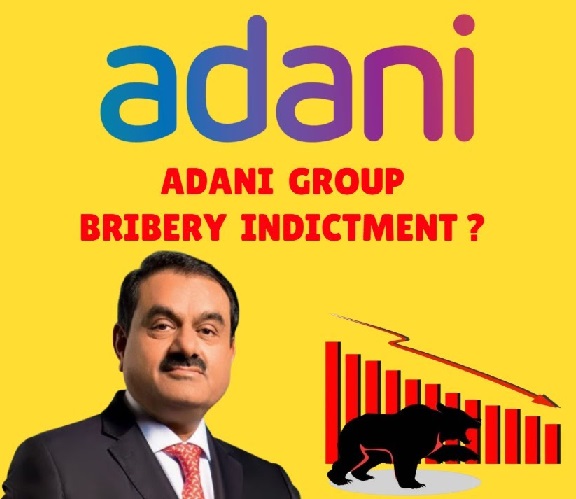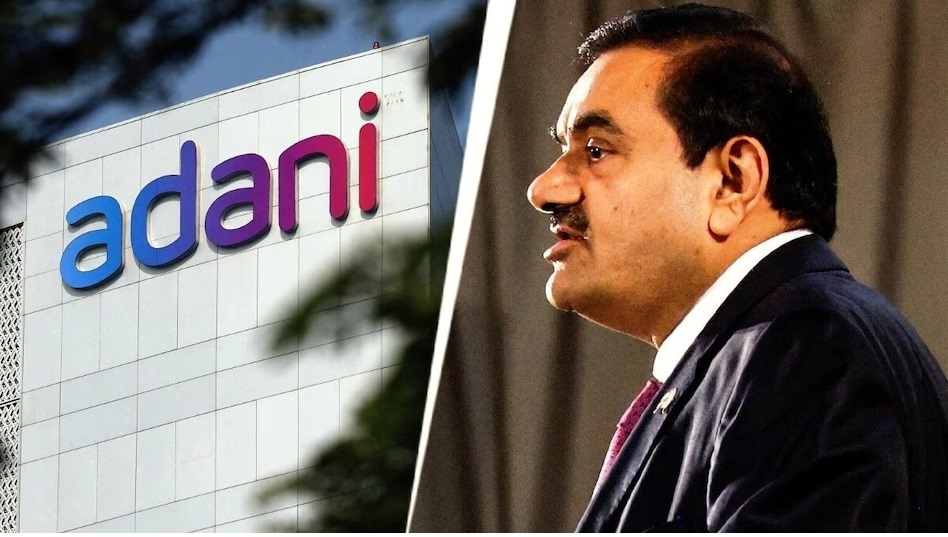Adani Group Faces U.S. Indictment Analysis
The Adani Group is one of India’s largest conglomerates, with operations spanning sectors like infrastructure, energy, ports, logistics, and beyond. Known for its rapid expansion and influence, the group has also faced significant scrutiny over the years. However, recent developments have cast a shadow over its global reputation. In a stunning legal move, a U.S. court has indicted several Adani Group companies on allegations of bribery in connection with energy rate contracts.
This case has not only sent shockwaves through the global business community but has also raised critical questions about corporate governance and ethical practices in high-stakes industries. At the heart of the indictment lies the alleged bribery of officials to secure favorable energy rate contracts—an act that, if proven, could have far-reaching consequences for the conglomerate and its stakeholders.
Background of the Indictment
The story began with a series of whistleblower complaints and investigative reports alleging unethical practices within the Adani Group. Over time, these claims gained traction, attracting the attention of international regulatory bodies. The U.S. Department of Justice (DOJ) launched a formal investigation after evidence surfaced indicating that certain Adani Group subsidiaries may have engaged in bribery to influence energy rate contracts.
The indictment, filed in a U.S. federal court, accuses Adani Group entities of paying bribes to foreign officials to secure contracts for energy distribution and pricing. The contracts in question involve multi-billion-dollar projects critical to the energy infrastructure of several countries, making the allegations particularly significant.

The Allegations: Bribery in Energy Rate Contracts
The crux of the indictment lies in allegations that Adani Group subsidiaries paid substantial sums to government officials in multiple countries to manipulate energy rate contracts in their favor. These contracts, crucial for determining energy prices for consumers and industries, are often the result of competitive bidding processes.
However, according to the indictment, the bidding process was anything but competitive. Adani Group executives are accused of colluding with officials to ensure favorable outcomes. Allegations include:
Direct Payments to Officials: Prosecutors claim that significant bribes were funneled to officials in cash and through offshore accounts.
Shell Companies for Illicit Transactions: The indictment details the use of shell companies to disguise the flow of money and obscure the trail of payments.
Inflated Project Costs: It is alleged that the group inflated project costs to account for the bribes, passing the burden onto consumers in the form of higher energy rates.
Unfair Advantages Over Competitors: By bribing officials, the Adani Group allegedly sidelined competitors, securing contracts it might not have otherwise won.
The DOJ’s filing highlights one particularly striking case where an Adani subsidiary reportedly paid millions of dollars to a high-ranking official in an African country to influence a $2 billion energy project. This deal, prosecutors argue, exemplifies the systemic nature of the alleged corruption.
Legal Proceedings and Evidence
The indictment has triggered a high-profile legal battle, with the U.S. court presenting a range of evidence to substantiate the allegations. Key pieces of evidence include:
Internal Emails and Communication: Leaked emails purportedly show Adani executives discussing payments to officials.
Witness Testimonies: Several whistleblowers, including former employees, have come forward with detailed accounts of the alleged bribery scheme.
Financial Records: Bank statements and transaction records allegedly trace the flow of funds to offshore accounts linked to the officials involved.
The legal process is still in its early stages, with the Adani Group strongly denying all charges. The group’s legal team has argued that the evidence presented is circumstantial and lacks definitive proof of wrongdoing. Adani’s defense hinges on discrediting the whistleblowers and challenging the validity of the financial records presented by prosecutors.
Financial and Market Implications
The indictment has already taken a toll on the Adani Group’s financial standing. The company’s stocks plummeted following the announcement, wiping billions off its market capitalization. International investors, particularly those with stakes in Adani’s energy projects, are reportedly reassessing their exposure.
Moreover, the allegations have raised concerns about the transparency of Adani’s operations, prompting credit rating agencies to review their assessments of the group’s financial health.
For the energy sector, the implications are equally significant. If the allegations are proven, it could undermine confidence in energy contracts globally, potentially leading to stricter regulations and oversight.
Broader Implications and International Response
The case has sparked widespread debate about corporate governance and the ethical responsibilities of multinational corporations. The Adani indictment is being closely watched as a litmus test for how seriously global regulators take allegations of corporate corruption.
In India, the case has political ramifications, given the Adani Group’s close ties to government officials. Critics argue that the scandal highlights the need for stricter anti-corruption measures in India’s corporate sector.
Internationally, the indictment could lead to greater scrutiny of other companies operating in similar industries. Governments and regulators may feel compelled to tighten oversight of bidding processes for large-scale infrastructure projects.
Adani Group’s Response and Future Outlook
The Adani Group has vehemently denied the allegations, describing them as baseless and politically motivated. In a public statement, the group emphasized its commitment to ethical business practices and transparency.
Adani’s legal team has indicated that it will fight the charges vigorously, with plans to challenge the jurisdiction of the U.S. court and the credibility of the evidence presented. The group is also reportedly exploring the possibility of reaching a settlement to avoid prolonged litigation.
Regardless of the outcome, the case represents a significant challenge for the Adani Group. Even if the company successfully defends itself, the reputational damage could have lasting consequences for its global operations.
Conclusion
The indictment of the Adani Group by a U.S. court is a watershed moment in the ongoing battle against corporate corruption. The allegations of bribery in energy rate contracts underscore the need for greater accountability and transparency in global business practices.
For the Adani Group, the case represents a critical test of its resilience and integrity. The outcome will not only determine the group’s future but could also set a precedent for how such cases are handled in the international arena.
As the legal proceedings unfold, the world will be watching closely, eager to see whether justice is served and what lessons can be learned from this high-stakes case.
Disclaimer
The information presented in this blog is based on publicly available reports and legal documents related to the recent indictment of Adani Group companies by a U.S. court. While every effort has been made to ensure accuracy, the legal process is ongoing, and details may evolve as the case progresses. The allegations discussed herein are unproven at the time of writing, and the Adani Group is entitled to a fair trial and due process under the law.
This blog is intended for informational purposes only and does not constitute legal or financial advice. The views expressed do not represent the official position of the Adani Group or any other party involved in the case. Readers are encouraged to refer to official court documents and statements from authorized bodies for the most reliable and up-to-date information.

